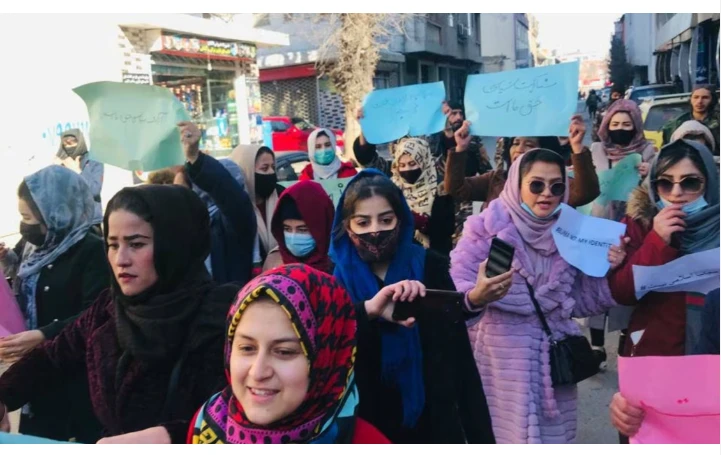The Taliban government has not been officially recognised by any state and the international community has wrestled with its approach to Afghanistan's new rulers.
When the UN, some 25 envoys including from the United States and a Taliban delegation meet in Doha on June 30 and July 1, the agenda will include economic issues and counter-narcotics.
But the exclusion of civil society groups including women's rights activists has sparked an outcry.
"Caving into the Taliban's conditions to secure their participation in the talks would risk legitimising their gender-based institutionalised system of oppression," said head of Amnesty International Agnes Callamard in a statement.
"Sidelining critical discussions on human rights would be unacceptable and set a deeply damaging precedent."
Taliban authorities were excluded from the first talks in May last year. They refused an invitation in February, insisting on being the only Afghan representatives at the official meeting, to the exclusion of civil society groups.
In this round, that condition has been met.
The UN and international delegations will have the chance to meet with civil society representatives, including women's rights groups, on July 2, after the close of the main meetings.
Since returning to power in 2021, Taliban authorities have enforced rules based on a strict interpretation of Islamic law, which they have said ensure all citizens' rights.
Women have borne the brunt of restrictions the UN has labelled "gender apartheid". They have been pushed out of public life, including bans from secondary schools, universities, various jobs as well as public parks and gyms.
In a letter to the UN seen by AFP, G7+ countries said they were "disappointed" over the lack of human rights on the agenda.
An open letter from 12 high-ranking women politicians from various countries called the exclusion of women "outrageous" and out of step with the UN Charter.
Afghan activists have urged invitees to boycott the meeting and called for protests in multiple countries.
- 'Engagement doesn't mean recognition' -
The Taliban authorities had warned shortly after announcing that they would attend the talks that changes to the agenda could affect their decision.
Rosemary DiCarlo, UN Under-Secretary-General for Political and Peacebuilding Affairs, will chair the talks.
She defended the set-up, saying: "This is not an inter-Afghan dialogue."
"I would hope we could get to that someday but we're not there," she told reporters in New York.
DiCarlo said the talks were a positive step in a process of engagement that would "take time".
"This is not a meeting about recognition. This is not a meeting to lead to recognition," she said. "Engagement doesn't mean recognition."
But Nader Nadery, a senior fellow at the Washington-based Wilson Center, cautioned that the international community cannot assume the Taliban government has bought in for future meetings where more contentious issues such as women's rights could be on the table.
"Based on evidence from past talks with the Taliban, unlike what the international community thinks, they are looking at each of these meetings as an event, not a process," said Nadery, who is also a former negotiator with the Taliban for the ousted Afghan government.
"The meeting would certainly add to their success of making the international community accept to meet with them on their own terms," Nadery told AFP.
"The agenda as it stands attempts to throw a softball to the Taliban."
Taliban Foreign Minister Amir Khan Muttaqi has said the invitation to Doha "indicates that the international community understands the importance and status of the Islamic Emirate of Afghanistan more day by day".


